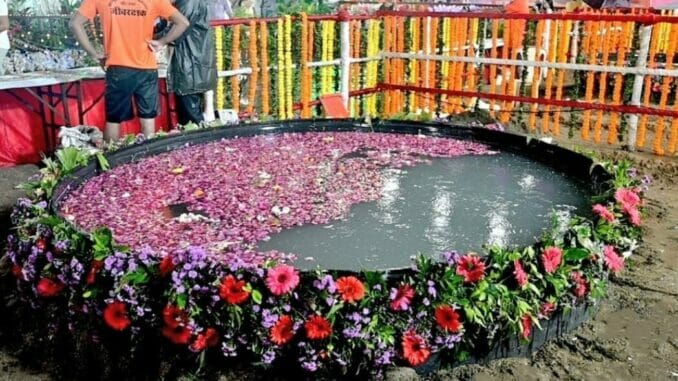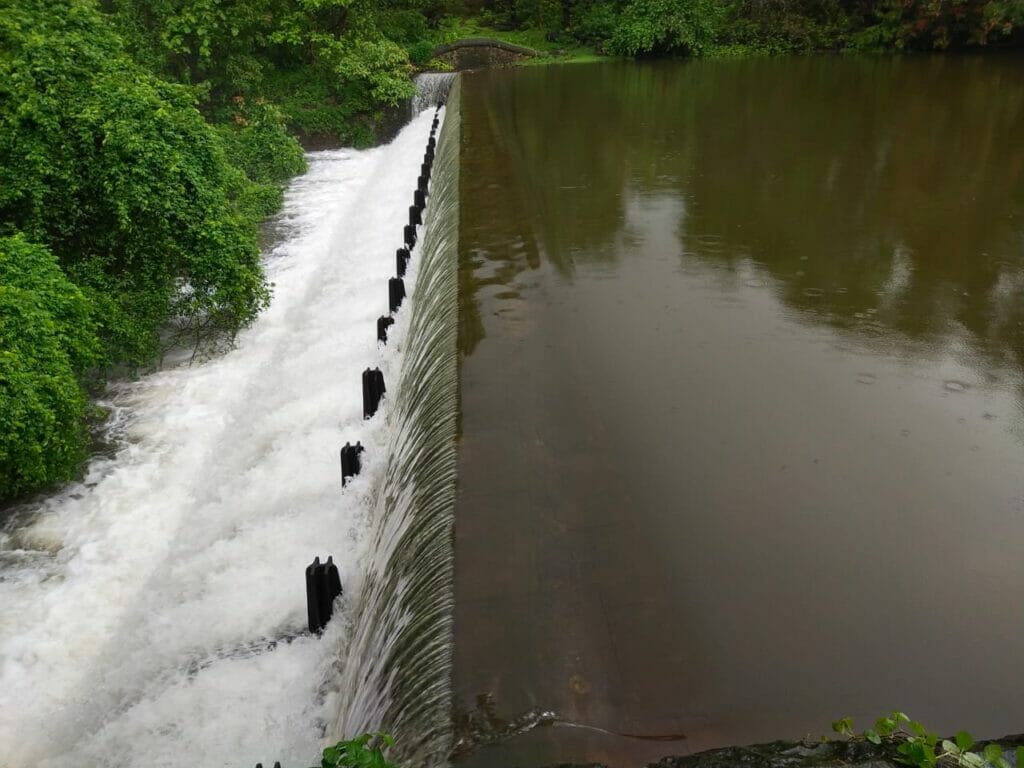37599 idols immersed on the last day of immersion
As Mumbaikars bid goodbye to Bappa, a total of 37,599 idols were immersed on Anant Chaturthi. Out of which 31,322 were household ones and 5840 were sarvajanik idols. Out of these, 734 sarvajanik and 10,121 household idols were immersed in artificial ponds.
The most famous Lalbaugcha Raja was immersed on Friday morning around 8.30 am. The procession started at 11 am on Thursday.

To maintain the ease of movement for Anant Chaturthi Day on Thursday, 93 roads were closed. The joint commissioner of police (traffic) Pravin Padwal had informed that from 10 am on Thursday to 6 am on Friday, 93 roads would be shut, 23 roads would be one-way, and goods vehicles would be banned on 34 roads and parking restrictions would be imposed at 107 places. BMC officials informed that no untoward incidents were reported.
Source: The Times of India, Mid day
Teenager dies during visarjan
Struck by lightning at Mumbai’s Juhu during visarjan a 16-year-old boy died on Thursday. The teen was identified as Hasan Yusuf Shaikh, a resident of Vakola. The boy’s body was recovered from the Juhu beach by officials of Drishti Lifeguard.
“Prima facie it appears that he had come alone to see the Ganesh idol immersion at the chowpatty. There was no Ganpati with him, nor was he accompanying any pandal. While he stood near the water at the beach, he got struck by lightning and fell into the water,” said assistant commissioner of police Mahesh Mugutrao.
Source: The Indian Express
Heightened security at Mantralaya after tragic incidents
Following two tragic incidents at Mumbai’s Mantralaya, the state’s administrative headquarters, where two women died by suicide on March 27, and an individual jumped from the first floor of the building on September 26, security measures have been significantly enhanced.
The Public Works Department (PWD) has taken steps such as installing steel ropes along the building’s balconies and corridors to enhance safety. To manage visitors more effectively, the building’s floors are now colour-coded, specific time slots are allocated to visitors, and colour-coded passes grant access to designated areas. Security personnel will maintain records, with penalties for violations. Additional security measures include the use of RFID tags for entering vehicles and a ban on eatables to avoid poisonous substances within the premises.
Mantralaya plays a crucial role in addressing grievances and handling government-related tasks, with around 3,500 visitors from across the state arriving daily for various matters.
Source: The Hindustan Times
Read more: Urban homeless: Shelters need to step up, but can only be stopgap solution
IIT Bombay controversy over ‘veg-only’ tables
A few months after the controversy surrounding divisive posters stating ‘vegetarians only are allowed to sit here,’ similar allegations of discrimination over food have resurfaced at the Indian Institute of Technology Bombay (IIT-B).
In an email sent on Wednesday, the mess council expressed the need to provide a comfortable dining experience for everyone. They cited concerns about some individuals being uncomfortable around non-vegetarian food, which could lead to health issues. Consequently, the email proposed the designation of six tables for exclusive vegetarian dining.
These tables would be clearly marked with signage reading, “This place is designated for vegetarian food only,” and penalties for non-compliance were mentioned. The email was shared on social media by the Ambedkar Periyar Phule Study Circle (APPSC), a student group at IIT Bombay.
Source: The Hindustan Times
No water cuts as lake levels cross 99%
The lake levels in the seven lakes that supply water to Mumbai have reached 99.6% capacity, ensuring there will be no water cuts in the city until the next monsoon season. Earlier in August, there were concerns that water cuts might be necessary if the levels did not reach around 100% by October 1.

Hydraulic engineers had calculated that the period from October 1 to June 15 constitutes the non-monsoon season, and insufficient water levels in August had raised worries. However, between September 24 and 25, several lakes received double-digit rainfall. Modak Sagar Lake received 51mm, Bhatsa 42mm, Tansa 23mm, and Middle Vaitarna 19mm, pushing the levels to 98.93% on September 25, 99.22% on September 26, and 99.66% on September 27.
Purshottam Malwade, a Hydraulic Engineer at BMC, confirmed that there is no need for water cuts. The BMC provides 3,900 million litres of water daily from these lakes to Mumbai.
Source: The Hindustan Times
Panvel civic body to build first shelter home for the homeless
Panvel Municipal Corporation is getting ready to build its first shelter home for homeless people. The corporation has started inviting bids for the construction of a shelter that will provide permanent homes for several hundred people. The structure made for the homeless is to be located at plot 7 A, situated in sector 12 of Khanda colony in Panvel.
According to the 2019 data, 169 people were found homeless in Panvel. “The survey back then was conducted through a third party. Of the 169 persons found to be homeless, 100 were categorised as active cases and the remaining 69 seem to be on the move. So a fresh survey is to be conducted,” informed the official.
Source: The Hindustan Times